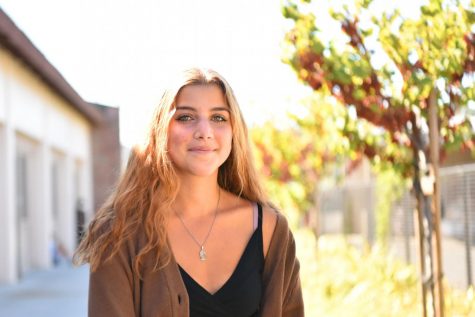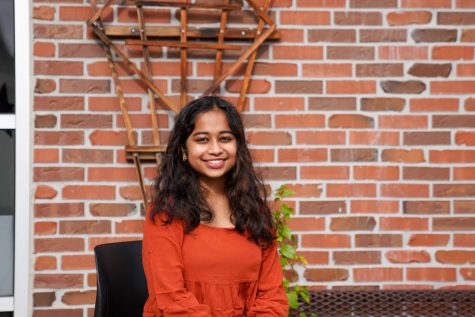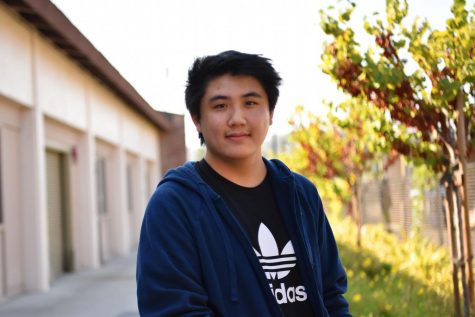Reacting to the Russia-Ukraine War
Exploring student and staff perspectives on the humanitarian crisis
April 27, 2022
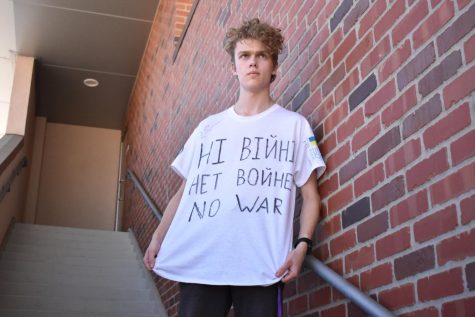
Though half of her family is Ukrainian and the other half is Russian, senior Sophia Bokovikova says both sides of her family hold a united view on the Russia-Ukraine war: they’re against it. Bokovikova’s own take is nuanced — while she acknowledges the current suffering of the Ukrainian people, she also recognizes the difficulty of Russian civilians who are experiencing sanctions imposed by the U.S. government.
“Being both Ukrainian and Russian puts me into a position of trying to make sure that I am knowledgeable about both sides and not neglecting one,” Bokovikova said. “I am just trying to learn more so that when all of these things are occurring, I have a clearer picture of it as opposed to just being completely disconnected and being an ignorant American.”
In contrast, senior Matvey Jensen, an ethnic Russian whose extended family resides in Russia, has chosen to fully identify with his German nationality. His personal response to the war was separating himself from his Russian background completely, which he describes feeling “ashamed” of.
“It’s a lot of mixed feelings that you get in this case because you just want to fight in the war yourself,” Jenssen said. “You just want to help the people there, but you can’t, because you’re stuck here.”
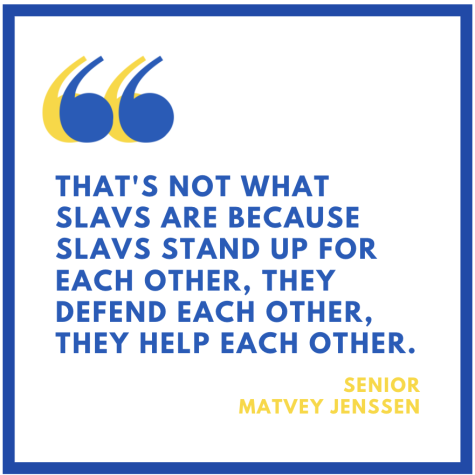
Bokovikova emphasizes the importance of checking in with her relatives who live in Kyiv and Luka routinely because she believes there is a lot of propaganda and false information coming from news sources in the U.S. She also says her family is “lucky”, as many of her Ukrainian family members have been able to escape to other countries such as Germany or the Czech Republic.
“It’s definitely very emotionally draining to see the news and to hear what they have to say and just worry about it constantly,” Bokovikova said. “As for my mom, her dad’s grave is in Ukraine, and it is where she grew up — her old house is there. Even having the physical objects be destroyed, that emotional sentiment is very difficult as well.”
Economics teacher Pete Pelkey also believes that the war is a calamity considering the past union between Russia and Ukraine.
“It’s an absolute tragedy,” Pelkey said. “The equivalent to what I see is if the U.S. invaded Canada — that is what the Russians are doing to Ukraine. They have been brothers, as close as any two countries have. And for them to have done this, it’s just a great tragedy.”
With any war, the economy plays a major role in the downfall of the two parties. Pelkey details the drawbacks the war will have on the economy of both Russia and Ukraine stating that the war “is going to push Europe into a recession.” This economic decline is supposedly going to take all “the gains that the Russian citizens have made since the fall of the Soviet Union.” But more than anything, Pelkey says this war is taking out Ukraine, which is the agricultural base in the region and will lead to starvation in Ukraine, Russia, and parts of Eastern Europe.
In efforts to educate his fellow students, Jenssen regularly wears a self-made T-shirt with the phrase “no war” printed across the front in three languages: Russian, Ukrainian and English. The back of the shirt says “a true Russian never kills a Ukrainian.”
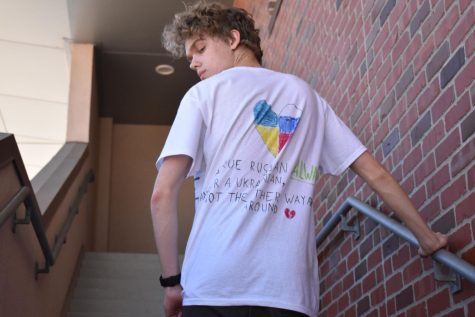
“In other words, a Russian always stands for a Ukrainian, not the other way around,” Jenssen said. “The other way around would be assassinating or committing genocide on Ukrainians. That’s not what Slavs are because slavs stand up for each other, they defend each other, they help each other.”
Although Jenssen urges students to increase their awareness of the war and support Ukrainian refugees, he also encourages “standing up” for Russians against the war who might face harassment.
“If you see any Russians who are against the war and feel like they’re going to be in danger, stand up for them, “Jenssen said. “If you see Russians who are against the war, don’t blame them in this case, because there are many Russians like my parents who are clearly against the war.”
Because of the war’s personal effect on her, Bokovikova says that it “sparked some reflection” in terms of her personal understanding of her culture. Since the war began, Bokovikova says she’s realized the importance of connecting more with her Ukrainian roots.
“The war has shown me that you don’t know what’s going to happen tomorrow or the day after — I think it’s definitely changed my life in that way,” Bokovikova said. “I hope that it can be a reminder for other people to live compassionately and to think critically about political leaders that we have in the world.”



